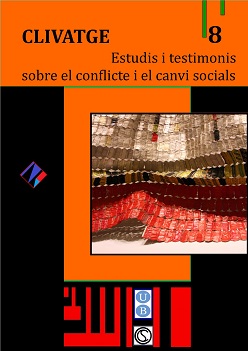Neoliberal Crisis, Policies of Confusion, and Populist Authoritarianism
DOI:
https://doi.org/10.1344/CLIVATGE2020.8.5Keywords:
neoliberal crisis, populismsAbstract
In 2008, the global financial crisis had such emblematic institutions as Blackstone or the popular investment bank Lehman Brothers filing for bankruptcy. The virtual totality of the American and European banking and insurance sectors had to be rescued at enormous expense. In the middle of this great crisis, we saw the emergences of many proposals to “reform neoliberal capitalism”. Besides this, there was enormous political confusion, linked to the inadequate resolution of economic crises and an accumulated feeling of unease experienced by large parts of the populations, who felt demeaned and abandoned by the governing institutions, which, in turn, caused political disaffection and social anomy. Amid all this, many of the alternatives put forward by populist movements were about establishing new institutions and ending present ones, which no one knows what consequences will have in the long term. This will be the axis around which our reflexion and analysis will revolve in this article.
Downloads
Published
How to Cite
Issue
Section
License
Copyright (c) 2020 Gonçal Mayos

This work is licensed under a Creative Commons Attribution 4.0 International License.
AUTHORS RETAIN COPYRIGHT. CREATIVE COMMONS
The authors who publish in this journal agree to the following terms
- The authors retain the copyright and grant the journal the right of first publication of the work, which will be disseminated following the Creative Commons Attribution license.
- Authors are free to establish additional independent contractual agreements for the non-exclusive distribution of the version of the work published in the journal (such as publication in an institutional or thematic repository, their personal website or a book), provided have your initial publication in this journal recognized.
- Texts will be published under a Creative Commons Attribution License that allows others to share the work, provided they include an acknowledgement of the work’s authorship, its initial publication in this journal and the terms of the license.
- Self-archiving of pre-print and post-print versions is allowed.







